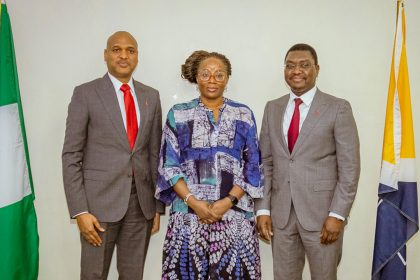Minister of Education, Dr Tunji Alausa, has declared that the Nigerian education system is being repositioned to meet the demands of the digital economy and build a globally-competitive, knowledge-based society.
Alausa, who stated this at the official launch of the digitalisation of public schools’ initiative and flag-off of the distribution of interactive smartboards at Queens College, Lagos, said the goal is to ensure that every child, regardless of background, has access to quality and technology-enabled education.
Alausa noted that the shift from chalkboards to smartboards marks a transition from traditional, one-directional learning by repetition teaching methods to dynamic, interactive and technology-enabled active learning, where students learn by engaging, exploring and creating.
He pointed out that the smartboards will allow teachers to integrate multimedia, digital textbooks, and real-time interaction into their lessons, while learners will go beyond listening to touching, exploring and engaging. The initiative seeks to strengthen the country’s basic education system, empower teachers with innovative instructional tools, and improve learning outcomes.
At least over 800 interactive smart boards have been distributed across the country’s public schools.
To foster innovation, the minister also announced plans to establish Science, Technology, Engineering, Mathematics, and Medicine (STEMM) , as well as Technical and Vocational Education and Training (TVET) centres across the country, in partnership with states; support Science Teachers Association of Nigeria (STAN) to build capacity for STEMM educators to promote enquiry-based learning, while also expanding teacher digital literacy and Edtech training to make classrooms smarter.






